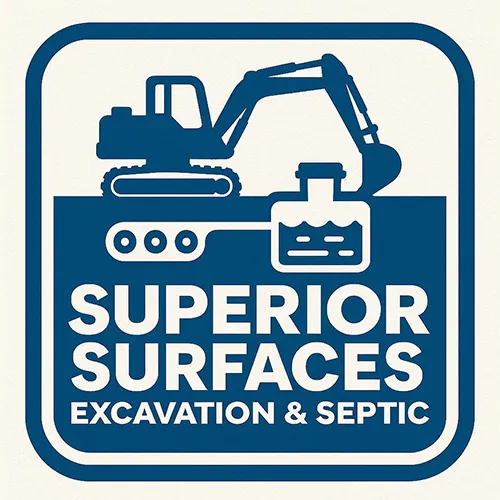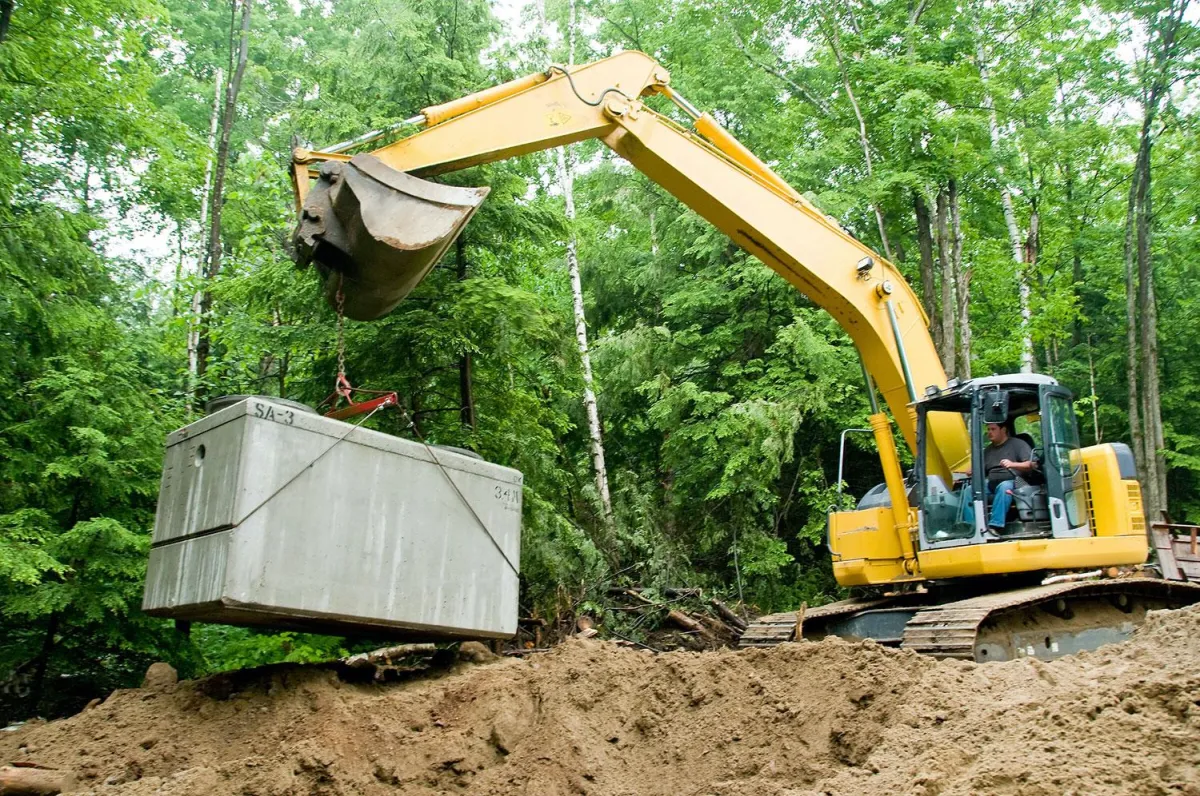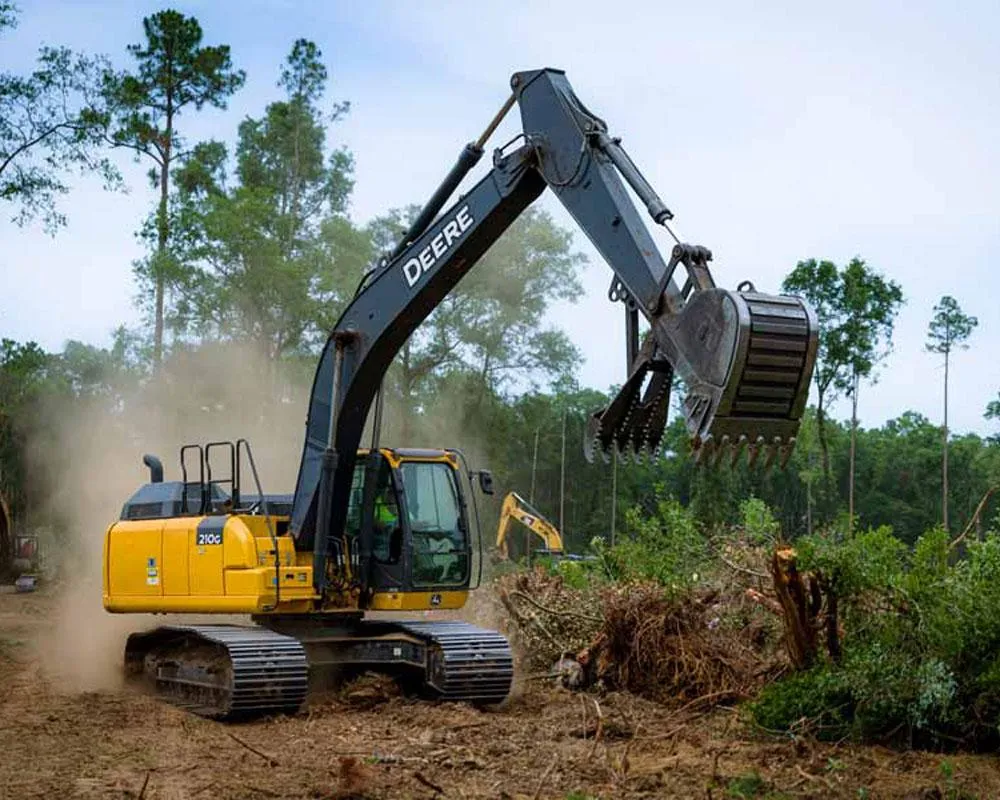
Serving Michigan counties: Macomb, St Clair, Wayne, Oakland, Genesee, and Tuscola Counties
Excavation and Septic Company near Yale in St. Clair County, MI
Superior Surfaces LLC is Committed to superior quality and results!

AVOID COSTLY MISTAKES:
Do NOT hire an excavating contractor without first reading our free guide:
The ULTIMATE Excavation & Septic "Success Guide."

Excavation and Septic Company near Yale in St. Clair County, Michigan
Living near Yale, you want dirt work and septic work done right the first time. This page gives you straight answers about services, benefits, pricing signals, and exactly how to hire in this part of Michigan.
How Can We Help?


What an excavation and septic company near Yale actually does
Think of excavation as shaping land so projects can start safe and square. Typical jobs include tree and brush removal, lot clearing, rough and final grading, trenching for utilities, culverts and driveway approaches, small and large demolitions, and digging foundations or ponds. When septic is involved, the scope expands to soil evaluations, system design with local code in mind, tank and drain field installation, lift stations, repairs, replacements, and emergency troubleshooting after backups or surface effluent shows up in the yard.
Because Yale sits in St. Clair County, site conditions vary: pockets of clay, seasonal groundwater changes, and frost depth all affect choices like pipe elevations, aggregate type, fabric, chamber systems, and pump sizing. A capable crew pairs the right machines—mini-excavators, dozers, skid-steers, compactors, and laser levels—with clean trenching practices that keep bedding uniform and slopes true.
Benefits of hiring an excavation and septic company near Yale in St. Clair County, Michigan
First, you get local code familiarity. Permits, setbacks, tap fees, and health department inspections in St. Clair County have rules that differ from other parts of Michigan. A local team speaks that language, which reduces revisions, re-inspections, and surprise costs.
Second, soil-smart design lowers lifetime expense. Matching system type to soil and use—gravity when possible, pressure when needed—prevents premature failure. That means fewer pump outs, fewer alarms, and longer drain field life.
Third, single-source accountability keeps schedules moving. When one crew handles clearing, digging, utilities, and septic, you avoid gaps between subs and own a single point of contact from stakeout to final grade.
Fourth, safety and environmental protection. Trench boxes, utility locates, silt fence, and driveway matting protect people, neighbors, and nearby waterways. Good housekeeping is not just courteous; it prevents fines and erosion.
Finally, clear proposals with line-item pricing help fair comparisons.
See Our Excavation and Septic

✔️ Commercial Excavation
✔️ Residential Excavation
✔️ Basement Excavation
✔️ Demolition
✔️ Large Pond Construction
✔️ Small Pond Construction
✔️ Dozer Work
✔️ Forestry Mulching
✔️ Grading, Lot Clearing
✔️ Retaining Walls
✔️ Concrete Flatwork - Driveways, Sidewalk, Foundations
✔️ Foundation Repairs
✔️ Full Site Preparation
✔️ Foundation Repairs
Quality Services Launched FAST!

✔️Septic Install and Repair
✔️ Septic Inspections
✔️ Septic Installs Traditional Systems
✔️ Septic Tanks - Plastic/Poly
✔️ Septic Tanks - Concrete
✔️ Drain Field Replacement
✔️ Drainage Systems
✔️ Aerobic Treatment Systems
✔️ French Drains
✔️ Trenching
What Are You Waiting For?
The process for hiring an excavation and septic company near Yale in St. Clair County, Michigan
Step 1: Discovery. Share your address, goals, and any survey or prior permits. Photos or a quick video walk-through help spot access issues, slopes, and trees
.
Step 2: Site visit and soil talk. Expect measurements, elevations, and a look at drainage patterns. For septic, a soil evaluation or perc data guides system sizing and location.
Step 3: Scope and estimate. You receive a written scope with phases—clearing, rough grade, trenching, septic, backfill, compaction, final grade, and restoration—plus timeline windows linked to inspections and material lead times.
Step 4: Permitting and utility locates. The crew files needed forms with St. Clair County and calls in Miss Dig 811. No digging starts until marks are down and approvals are in hand.
Step 5: Execution. Access protection goes in first, then excavation begins. The team checks elevations with laser receivers, compacts lifts to spec, places tanks and pipe per plan, and keeps trenches dry and true.
Step 6: Inspections and backfill. After health department sign-off, the crew backfills in lifts, compacts, and restores grade so water sheds away from structures.
Step 7: Handover and care. You get as-built notes, maintenance tips, and warranty terms in plain language.
Signals that influence price and timeline in Michigan
Access. Narrow gates, overhead lines, or soft ground may require smaller machines, mats, or extra trips.
Haul-off and import. Removing stumps, debris, or saturated soil and importing aggregate or topsoil changes trucking costs.
Water management. Dewatering, temporary swales, or sump pumping slows production but protects trenches.
Seasonal windows. Spring thaw and fall rains demand tighter sequencing; winter work may need frost teeth, heaters, or thaw blankets.
Change requests. Mid-project additions—extra downspouts to daylight, longer drive, or patio subgrade—are fine, but document them so the schedule stays realistic.
How to prepare your property like a pro
Mark desired tree saves with ribbon, point out septic alarms or cleanouts, unlock gates, move vehicles and trailers, and walk the property line with the crew. If you have well, propane, or irrigation lines, show locations. Clear pets and coordinate neighbor access if trucks must stage on a shared drive.
Permits and inspections in St. Clair County, Michigan
Plan for health department review of your septic design, staking of tank and field locations, and scheduled inspections before backfill. Structural or driveway work may also require township permits. Good contractors build these checkpoints into the calendar, reducing idle time, rework, and surprises while keeping the project aligned with Michigan codes.
Care and maintenance after the job
For septic systems, pace water use the first weeks so the field stabilizes. Pump tanks on the schedule recommended for your household size. Keep roots, vehicles, and heavy structures off drain fields. For excavation areas, watch grades after heavy rain; minor touch-ups are normal as soil settles.
Why “near Yale” matters
Crews working daily around Yale understand township practices, county turnaround times, local suppliers, and which aggregates are stocked nearby. That saves drive time, reduces mobilizations, and gets you faster inspections, especially during peak building seasons.
A straight-talk promise
You should always know what’s happening next, who is responsible, and what each line item costs. When you hire an excavation and septic company near Yale in St. Clair County, Michigan, insist on clarity, code compliance, and craftsmanship you can see from curb to cleanout. That way your project finishes safely, on budget, and ready for inspection for homeowners.
Hours: Monday-Saturday 6:00am-6:00pm
Extended hours by appointment only.
Address: 23450 29 Mile Rd, Ray, MI 48096, USA
All rights reserved | Client Support Area